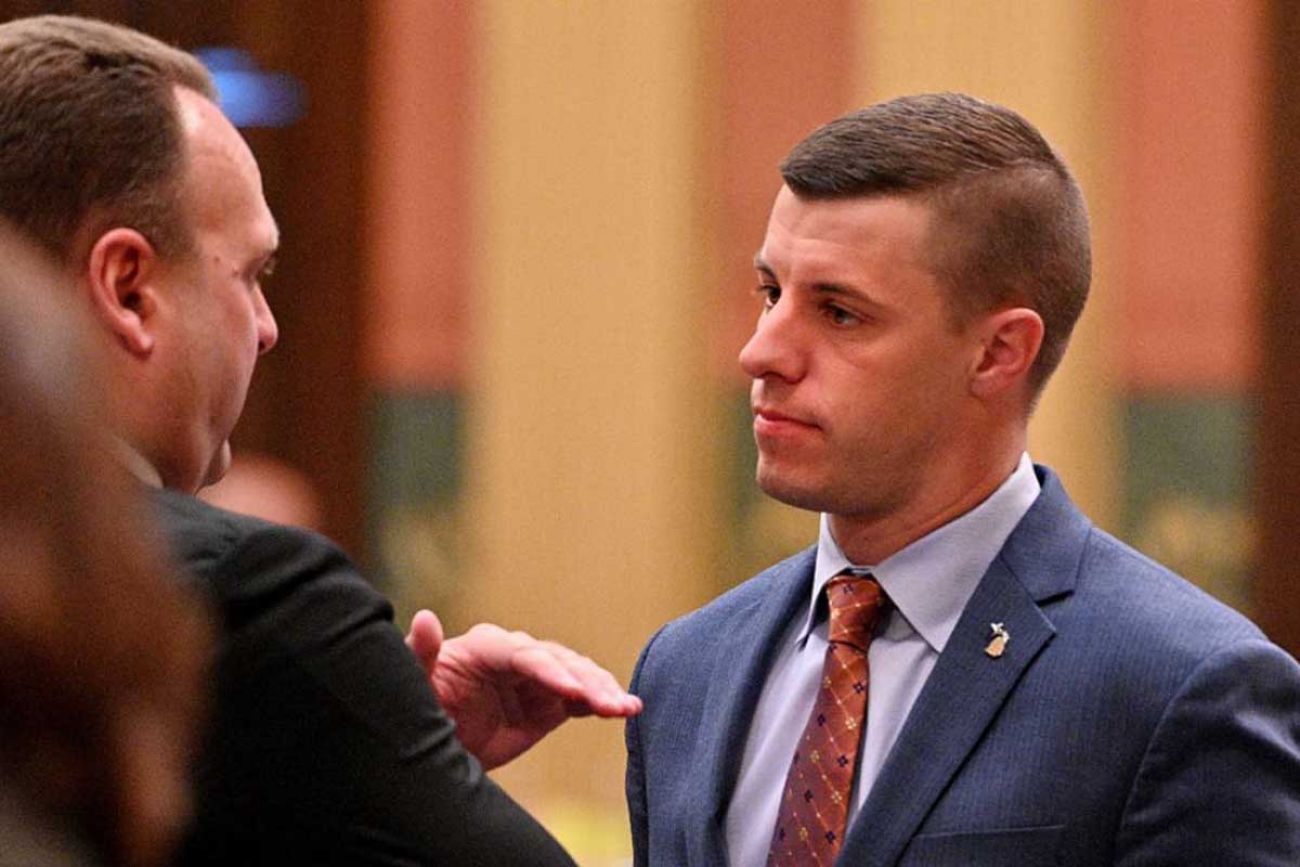Bridge, Free Press seek court hearing to open Chatfield records to public

- Bridge Michigan and the Detroit Free Press have been seeking access to records in the Chatfield investigation for months
- After a judge granted release of some records, Nessel’s office went to a second judge to block their release
- The news organizations are seeking to limit the time the AG can shield the records from public release
Bridge Michigan and the Detroit Free Press want a judge to limit how long Michigan Attorney General Dana Nessel can shield records from the public in the criminal investigation of former House Speaker Lee Chatfield, according to a motion filed Wednesday by lawyers representing the two news outlets.
Such a decision could pave the way for the eventual release of records that a separate court has already ordered be made public.
The motion asks Ingham County Circuit Judge Wanda Stokes to amend an earlier order that indefinitely blocked the news outlets from accessing search warrants and affidavits pertaining to the Chatfield investigation. The news organizations asked Stokes to give Nessel’s office a deadline to formally appeal a lower court judge’s decision to release the records, and make the records public if state lawyers miss that deadline.
Related:
- Dana Nessel obtains blanket shield of Lee Chatfield investigation records
- Sister-in-law: Ex-MI House Speaker Lee Chatfield sexually assaulted me as teen
- Lee Chatfield raised millions, traveled often. Michigan law kept much secret
Stokes’ order barring release came hours before Bridge and the Free Press were set to obtain the records, which investigators had kept private for months despite state laws that generally make such records public after 56 days, with limited exceptions.
“In short, the attorney general has acted—and continues to act—to suppress not only the limited information statutes make temporarily non-public, but to effectively suppress all court records and actions relating to the investigation indefinitely and perhaps permanently,” reads the motion by attorneys representing Bridge and the Free Press.
The lawyers asked to schedule a hearing on the motion for Dec. 14, or some time shortly thereafter, and order Nessel’s office to notify the news organizations of any future court filings it makes regarding the records.
Nessel's office did not respond to a request for comment Wednesday, and has declined to discuss the case before. But the attorney general sent a series of tweets early Thursday morning criticizing the news organization's legal efforts to require the release of the information.
"Producing sealed search warrants & their underlying affidavits seriously compromises the integrity of any investigation. This information should never have been revealed in the first place," she said, alluding to the Detroit News obtaining some search warrants recently.
"It’s disingenuous to create the impression that maintaining these documents under seal until the investigation is completed is nefarious in nature. To the contrary, it’s in keeping with the professional practices of any law enforcement agency."
Robin Luce-Herrmann, one of the lawyers representing Bridge and the Free Press, disagreed, pointing out Michigan law specifically defines when and how such information can be barred from the public.
"The law does not allow the wholesale suppression of all information related to criminal investigations. Limited information can be temporarily shielded from public view under specific circumstances," Luce-Herrmann said in a statement. "We believe that information has been suppressed beyond what the Legislature has authorized, and the criteria for suppression of the affidavits no longer applies – if it ever did."
Chatfield, a Levering Republican who left office in 2020, has not been charged with a crime and has denied illegal conduct. The lengthy criminal inquiry follows allegations of sexual assault and potentially sweeping financial illegalities while Chatfield was House speaker.
In early November, attorneys for Bridge and the Free Press convinced 54-A District Court Judge Stacia Buchanan that the attorney general’s office could no longer keep the records private. Buchanan noted in her ruling that investigators had justified suppressing the documents by relying on a statute that only permits shielding records from the person subject to a search — not from the broader public.
But shortly before the records were set to be released to Bridge and the Free Press, the attorney general’s office filed an unorthodox motion with Stokes in Ingham County Circuit Court, asking her to block their release until it could appeal the district court decision.
Neither Bridge or the Free Press were notified by Nessel’s office of its intent to challenge the document release or given an opportunity to contest it. Then Stokes closed the case.
“When (Bridge and the Free Press) appeared on November 22, 2022, to obtain copies of the materials released by Chief Judge Buchanan, they were informed that the Circuit Court had issued a stay order on November 21, 2022,” reads part of the motion submitted by Bridge and Free Press lawyers Robin Luce-Herrmann, Jennifer Dukarski and Barrett Young.
“That was (Bridge and the Free Press)’s first notice that a stay had been sought, let alone granted. The Attorney General’s Petition to this Court presents no information that it ever sought a stay of Chief Judge Buchanan’s November 8, 2022 Order in the District Court.”
Nessel’s quest to keep the records secret comes after the 54-A District Court released some search warrant documents to the Detroit News, while continuing to block them from other news outlets. Nessel’s office wants those documents to remain inaccessible to the public, as well.
The news organizations are seeking the records because they could reveal new details about the scope and nature of the allegations against Chatfield. Previously released records, for example, made it clear that an investigation prompted by allegations that Chatfield had sexually assaulted his younger sister-in-law for years had broadened to include a probe of Chatfield’s financial affairs.
The investigation began nearly a year ago after Chatfield’s sister-in-law, Rebekah Chatfield, told Bridge Michigan and police last December that Lee Chatfield began sexually assaulting her when she was a teenage student at the Northern Michigan religious school where he formerly taught.
Additional comments by Aaron Chatfield, Lee Chatfield’s brother and Rebekah Chatfield’s husband, raised new questions about Lee’s financial conduct while in office.
Since then, investigators have conducted multiple known searches of Chatfield and his associates’ properties and belongings.
Bridge Michigan CEO John Bebow decried the attorney general’s continued efforts to shield the Chatfield records as counter to Nessel’s professed respect for government transparency.
“There is extreme public interest in this investigation,” he said in a Tuesday interview, “and we will continue to press for public knowledge of this matter.”
See what new members are saying about why they donated to Bridge Michigan:
- “In order for this information to be accurate and unbiased it must be underwritten by its readers, not by special interests.” - Larry S.
- “Not many other media sources report on the topics Bridge does.” - Susan B.
- “Your journalism is outstanding and rare these days.” - Mark S.
If you want to ensure the future of nonpartisan, nonprofit Michigan journalism, please become a member today. You, too, will be asked why you donated and maybe we'll feature your quote next time!




